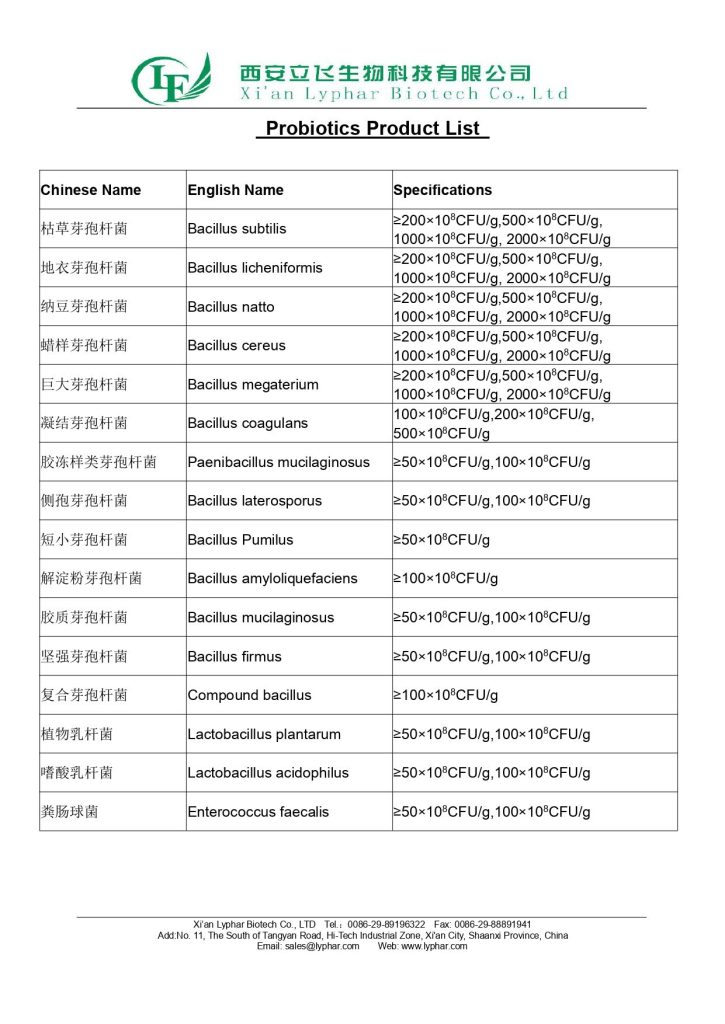What is Bacillus megaterium Powder
Bacillus megaterium is often used to study protein localization, structures and membranes which is a very large bacterium at about 60 micrometers. Bacillus megaterium Powder is known as saprophyte and aerobic which is usually found in soil that grows from 3’C-45’C and some isolated from the geothermal lake with a temperature of 63’C.
Bacillus Megaterium uses in agriculture
Bacillus megaterium Powder is deemed to be capable to produce a large variety of proteins cause its desirable cloning host that generates numerous plasmid vectors while remaining stable due to of its unique variety of enzymes and as a source of bioremediation,it seems like an industrial organism and gives a plethora of different proteins that able to employ important industrial, medical and scientific advances.
Bacillus megaterium uses plays an important role in the biocontrol of plant diseases, Bacillus megaterium uses in agriculture has been significant since it produces penicillin amidase used to make synthetic penicillin, glucose dehydrogenase is used as an indicator for glucose blood tests, and amylase is used in the bakery industry as a production material for food additives. Bacillus megaterium also produced vitamin B12, antiviral properties drugs, enzymes for modifying corticosteroids as well as amino acid dehydrogenases.
Bacillus megaterium Powder naturally produces a fatal toxin to some of herbivorous insects. So Bacillus thuringiensis (Bt) has been used as an insecticide spray since the early 19th century and is widely used in organic farming. Bacillus megaterium Powder produces toxin on its own to deter kinds insect pests, Bacillus Megaterium is also the source of the genes used to genetically modify a range of food crops. The toxin produced by Bacillus megaterium Powder is lethal to several insects, such as butterflies, skippers, moths, and beetles, though a number of Bacillus Megaterium strains are available to make its use more targeting.
Bacillus megaterium has an innate ability to survive and grow in extreme ecological niches and some other stress conditions. The research of Bacillus megaterium uses in agriculture has promoted several studies in unraveling the molecular mechanisms of acid tolerance in bacteria, especially in the field of food and beverages.
How Bacillus Megaterium works
Bacillus Megaterium Powder is commonly considered a soil bacterium, actually, it’s an aerobic spore-forming neutralophilic bacterium found in diverse habitats. Bacillus megaterium Powder possesses plant growth-accelerating activity including biocontrol ability against plant pathogens. In the past, studies of Bacillus megaterium have been reported and a number of stains have been developed, researchers characterized several features including auxotrophy, division, recombination, sporulation, germination, antibiotic resistance and neutral protease. However, the molecular mechanisms underlying the ability of Bacillus megaterium Powder to withstand stress conditions are still an unsolved project.
Advantages of Bacillus Megaterium uses
Bacillus megaterium provides various kinds of advantages that make this gram-positive, aerobic, endospore-forming bacterium a promising candidate for the production of recombinant proteins.
An example of an industrial application of this vector is to intensify the expression of penicillin G acylase by the PAC gene of Bacillus megaterium itself. Bacillus Megaterium has one advantage in the production of this enzyme over E. coli: the machinery for secreting the enzyme is present in wild strains. Bacillus Megaterium uses a variety of substrates, does not produce endotoxin, has high secretion capacity, does not have alkaline protease, and has good plasmid stability.
The theory of Bacillus megaterium
Endogenous PGA production by Bacillus megaterium is strongly catabolically inhibited by glucose and glycerol, which are often used to culture cells at high cell densities because they are readily assimilated by carbon sources. Silva recommends using an amino acid-free medium to overcome this problem but has the disadvantage of reducing specific growth rates. Cloning of the Bacillus megaterium PAC gene in Bacillus megaterium itself, while using a promoter (xylose) to control expression, is an alternative approach currently being investigated by our group to address the problem of PGA overexpression. This will allow high cell-density cultures using glucose as a carbon source, thereby increasing production efficiency. It is expected that by increasing the number of cloned plasmids containing the pac gene in Lactobacillus macrobacterium, the expression level of PGA will also increase. However, the size and number of microbial endogenous plasmids may prevent the cloning of large pac copies. Therefore, deletion of endogenous plasmids from wild strains is a promising strategy to enhance xylose-induced PGA expression. On the other hand, culturing B. megaterium at high densities presents some difficulties: high levels of glucose can lead to acidic aerobic fermentation (spillover mechanism), while depletion of carbon sources and/or accumulation of lactic and acetic acids can lead to sporulation. Bacillus sporulation is also a key factor in optimizing bioreactor operation. For Bacillus subtilis, Carvalho reported this phenomenon in aerobic cultures following glucose depletion.
The effect of Bacillus megaterium
- Bacillus megaterium powder is a phosphorus-dissolving bacteria with the characteristics of rapid reproduction, strong vitality, safety and non-toxicity. It dissolves compounds such as calcium, phosphorus, iron, and aluminum that are not easily absorbed by soil crops, and promotes the dissolution and utilization of ineffective phosphorus in soil.
- The growth of the Bacillus megaterium powder produces a large amount of protease, amino acids, cytokinins, etc., which enhances the vitality of crop cells, accelerates crop metabolism, increases flowers and fruits, fruit expands quickly, tastes good, and greatly improves crop yield and agricultural product grade.
Bacillus megaterium secretes a large amount of highly active chitinase, which can quickly remove pathogenic bacteria, accelerate the growth and development of rhizobia and root systems, and promote the development of crop root systems. Bacillus Megaterium uses in agriculture have a strong preventive effect on physiological diseases caused by continuous cropping and other diseases.
Below are the organic agriculture-related products that Lyphar can provide, if you are looking for products in this area, please contact us.

